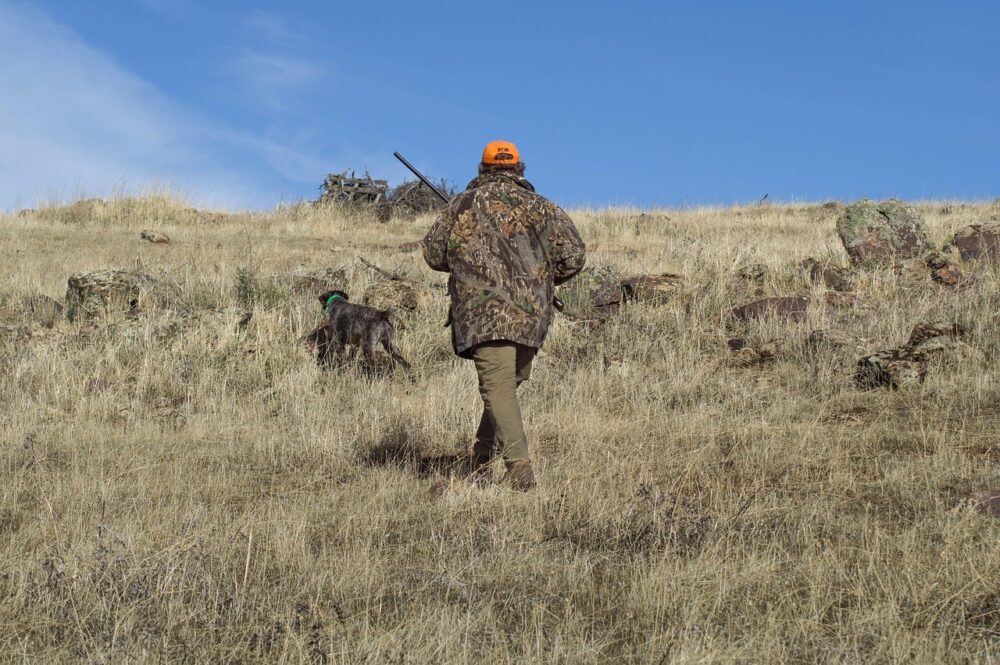On 8 and 9 March, the Veneto Region authorized a race of hunting dogs in twenty -four municipalities in the province of Treviso. Although the killing of hares is not expected, the event threatens puppies and breastfeeding mothers. Lav presented an urgent warning, denouncing the risks for wildlife
A cruel competition that threatens wildlife: harsh hunting
The event, sponsored by Agro -Spun Directorate of the Veneto Regionprovides for the use of trained dogs to place hares in the fields. Despite the promise that no specimen will be demolished, the simple pursuit can have harmful effects.
A study conducted with the participation of Federcacciahighlighted that the period between March and May represents the maximum peak of the reproduction of hares. During these months, females give birth to the little ones, which are totally dependent on maternal care.
«The dogs, driven by their training and the strong predatory instinct, would indiscriminately chase the lepre specimens, separating the mothers from their puppies. This would cause the death of the small ones and a remarkable physical and psychological stress for females“Said Massimo Vitturi, head of the wild animal area of the LAV.
According to Vitturi, the Veneto Region is making itself an accomplice of a brutal practice: «We sent an urgent warning to the president Luca Zaia, to cancel this absurd and cruel competition. It is unacceptable that, even in the hunting season closed, they allow themselves activities that cause further suffering to animals».
Ecological impact and waste of public resources
According to Lav, the Veneto Region invests large resources annually for the demolition of thousands of foxes, with the declared objective of promoting the reproduction of hares.
«We are faced with a paradoxical management of wildlife“Explain Victor. «On the one hand, massacres of foxes are authorized to protect the hares, from’More allow competitions that put them at risk. It is a waste of public resources that damages the’balance of’ecosystem and rewards only the interests of the hunting world ».
It is important to emphasize that the European Lepre (Rabbit europseus) It is considered an unavailable heritage of the state. This means that its exploitation cannot take place arbitraryly but must be regulated in accordance with the conservation regulations of biodiversity.
However, the continuous support for activities that favor the world of hunting seems to contradict these principles. Lav has already announced that, if the Veneto Region does not suspend the competition, it will proceed with a complaint to the competent authorities.
Legal consequences and institutional responsibilities
At the moment, the Veneto Region has not yet provided official statements regarding the warning of Lav. However, the growing media attention and the risk of legal implications could push the regional authorities to a revision of their decision.
If the event were to be canceled, a significant legal precedent would be created for the protection of wildlife in Italy. On the contrary, if the competition took place regularly, the Lav could proceed legally, bringing the case to the attention of the judiciary, as already happened in other circumstances.
An emblematic example is that of Province of Bolzanowhere an illegitimate authorization for the demolition of wild animals led the president and manager of the hunting office to have to compensate almost one million euros for tax damage.
«If the Veneto Region insists on not canceling the’event, we will not hesitate to act through legal waysIt reiterated Vitturi. “If someone has decided to encourage hunters at the expense of animal welfare and de’public interest, then it will be called to respond economically “.
Hunting and protection of wildlife: an increasingly heated conflict
The controversy on the race in Veneto is part of a wider debate on the management of wildlife in Italy. On the one hand, environmental associations denounce the systematic alteration of ecosystems for the benefit of hunting interests. On the other, the world of hunting continues to claim its own role in regulating natural balances, often with the support of regional administrations.
Public opinion, on the other hand, is increasingly sensitive to animal welfare and the need for more sustainable policies.
The epilogue of this affair could mark an important watershed in the regulation of hunting activities in Italy, redefining the balance between the protection of wildlife and the practices related to hunting.
According to Vitturi, it is a cultural problem that requires a change of perspective: «We cannot continue to exploit wildlife as if it were a private good. These animals belong to everyone, and their well -being must be a priority compared to the interests of a minority “.
The outcome of the story may have important repercussions on future measures regarding the protection of wildlife and hunting regulation. It remains to be seen if the regional authorities will be willing to listen to the voices that ask for greater respect for the environment and for the living beings who live in it.

